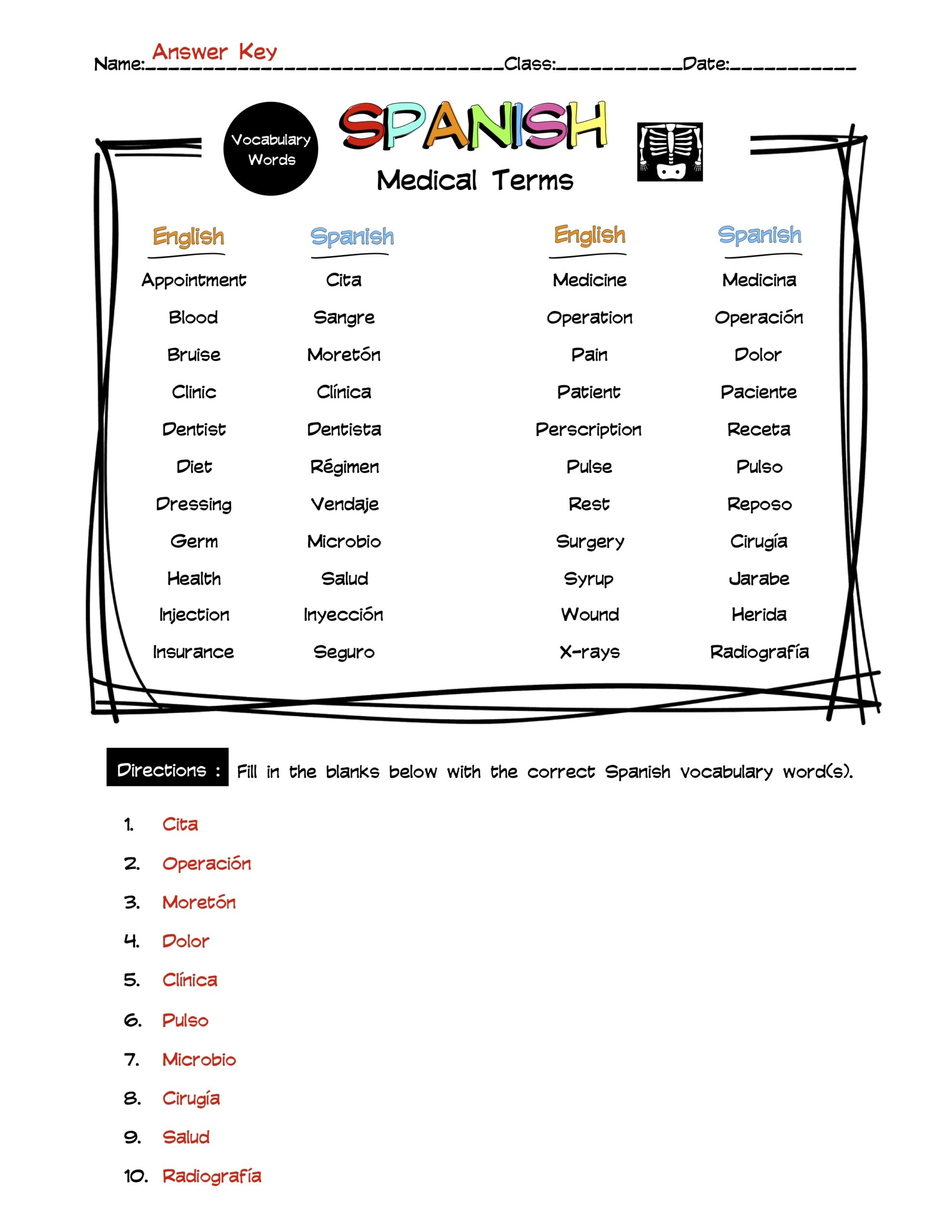When it comes to healthcare, understanding medical terminology is crucial for effective communication between healthcare professionals and patients. Medical vocabulary consists of specialized words and phrases that are used in the field of medicine to describe various conditions, treatments, and procedures.
Whether you are a healthcare provider, a medical student, or a patient, having a good grasp of medical vocabulary can help you navigate the complex world of healthcare more effectively.
Common Medical Terms
1. Diagnosis: The identification of a disease or condition based on symptoms, medical history, and diagnostic tests.
2. Prognosis: The likely course and outcome of a disease or condition, often based on the patient’s response to treatment.
3. Treatment: The management and care provided to a patient to address a medical condition, which may include medications, surgery, therapy, or other interventions.
4. Symptoms: The subjective experiences reported by a patient that indicate the presence of a disease or condition, such as pain, fatigue, or nausea.
5. Procedure: A medical intervention or technique performed to diagnose or treat a patient’s condition, such as a biopsy, surgery, or imaging study.
Understanding these and other common medical terms can help you communicate more effectively with your healthcare provider and better understand your own healthcare needs.
Medical vocabulary plays a crucial role in the field of healthcare, helping to ensure accurate and precise communication between healthcare professionals and patients. By familiarizing yourself with common medical terms, you can empower yourself to take an active role in your own healthcare and make informed decisions about your health.
Whether you are discussing a diagnosis, treatment options, or a prognosis, having a good understanding of medical vocabulary can help you navigate the complex world of healthcare with confidence and clarity.
